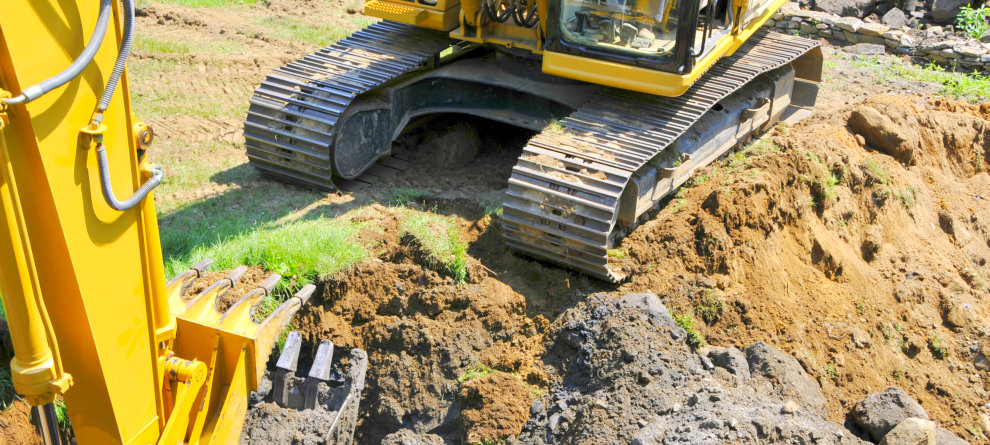Business Lancaster Trenching - Trenching Solutions for Companies in Lancaster
Business Lancaster Trenching - Trenching Solutions for Companies in Lancaster
Blog Article
Comprehensive Excavation Approaches: Mastering the Basics for Success
In the realm of building and civil design, the importance of reliable excavation methods can not be overemphasized. The mindful preparation, specific implementation, and meticulous attention to information needed in excavation tasks demand an extensive strategy that incorporates numerous essential elements. From first dirt analysis to the execution of security procedures and normal development monitoring, grasping these core elements is essential for accomplishing success in any type of excavation undertaking. Nevertheless, truth mastery lies not merely in understanding these fundamentals however in seamlessly integrating them to browse the complexities of excavation projects with skill.
Recognizing Excavation Task Planning

Successful excavation projects are constructed on the structure of thorough and detailed preparation. The first stage of any type of excavation job is the preparation phase, where critical decisions are made that can significantly affect the end result of the project. Throughout this phase, it is necessary to collect all pertinent details concerning the website, consisting of topographical studies, soil composition, and any type of possible hazards that might exist. Recognizing the task spending plan, timeline, and range constraints is vital for creating a thorough excavation plan that guarantees the job's success.
One key facet of excavation project preparation is the advancement of a thorough timeline that describes the series of due dates, milestones, and tasks. This timeline functions as a roadmap for the project team, permitting them to track development and make essential modifications to guarantee the project remains on timetable. Additionally, a well-defined budget plan that makes up all expenses, consisting of tools leasing, labor expenses, and materials, is crucial for preventing expense overruns and delays. By thoroughly considering all these aspects throughout the planning stage, excavation jobs can be implemented successfully and properly, resulting in effective results.
Soil Analysis and Site Examination
Conducting extensive soil analysis and site examination is an important action in the prep work stage of any excavation task. Dirt evaluation includes determining the composition, framework, and properties of the soil at the excavation website. This details is vital for comprehending the dirt's bearing capacity, dampness material, and potential for erosion, which are crucial consider figuring out the excavation approaches and equipment needed for the task.
Website examination surpasses soil analysis and includes a more comprehensive assessment of the total site problems. This analysis consists of recognizing any type of possible risks, such as underground energies, environmental worries, or unsteady terrain, that might affect the excavation process. By extensively assessing the website, job managers can develop efficient excavation techniques that prioritize safety and security, effectiveness, and environmental management.
Using innovative modern technologies like ground-penetrating radar, dirt tasting, and drone studies can improve the precision and effectiveness of soil analysis and website evaluation. Spending time and resources in these preliminary steps can inevitably save time and protect against expensive hold-ups or problems during the excavation procedure.
Tools Selection and Application
Reliable excavation projects count greatly on tactical equipment choice and use to make certain ideal performance and productivity. Choosing the best equipment for the job is essential in making best use of effectiveness and lessening downtime. Variables such as the kind of dirt, depth of excavation, and project scope play a significant role in determining the most suitable devices for the job at hand.

In enhancement to picking the proper equipment, proper usage is vital to project success. Operators should be trained to manage the devices securely and effectively - septic ohio. Normal maintenance checks and timely repair work assist stop malfunctions and ensure regular efficiency throughout the task
Safety Steps and Rules Compliance
In the world of excavation projects, prioritizing safety and security procedures and compliance with policies is vital to ensuring a safe and legitimately audio operational setting. Precaution encompass a series of practices, consisting of carrying out comprehensive site evaluations, applying appropriate signage and obstacles, and supplying appropriate safety and security official source training for all employees included in the excavation procedure. Adherence to regulations, such as OSHA requirements in the USA, makes certain that the excavation task fulfills the needed standards to secure workers, spectators, and the surrounding environment.

Tracking Development and Adjusting Methods
Just how can predict supervisors successfully track the development of excavation tasks and adapt their methods accordingly to enhance outcomes? Monitoring progress is necessary for making certain that excavation jobs remain on track and fulfill target dates. Project supervisors can use different devices and methods to track development, such as day-to-day report card, regular website examinations, and advanced tracking modern technologies like drones and GPS tracking systems. By continuously keeping an eye on the project's development, supervisors can recognize any type of prospective hold-ups or problems at an early stage and take aggressive measures to resolve them.

Verdict
Finally, grasping the basics of comprehensive excavation methods is essential for the success of any job. By recognizing project planning, analyzing soil and site problems, picking suitable equipment, adhering to safety guidelines, and monitoring development, job managers can ensure a efficient and smooth excavation procedure. Carrying out these methods will cause effective outcomes and reduce possible risks or troubles during the excavation task.
The initial phase of any kind of excavation task is the preparation stage, where essential decisions are made that can significantly affect the end result of the job. Recognizing the task timeline, scope, and budget discover this plan restraints is critical for developing a thorough excavation strategy that makes sure the job's success.
How can forecast supervisors effectively track the advancement of excavation jobs and adapt their methods accordingly to optimize outcomes? By carefully checking development and being prepared to adjust methods, project supervisors can enhance the overall success of excavation projects.
By comprehending project preparation, evaluating soil and site problems, picking proper equipment, complying with security policies, and checking progress, task managers can guarantee a reliable and smooth excavation process.
Report this page